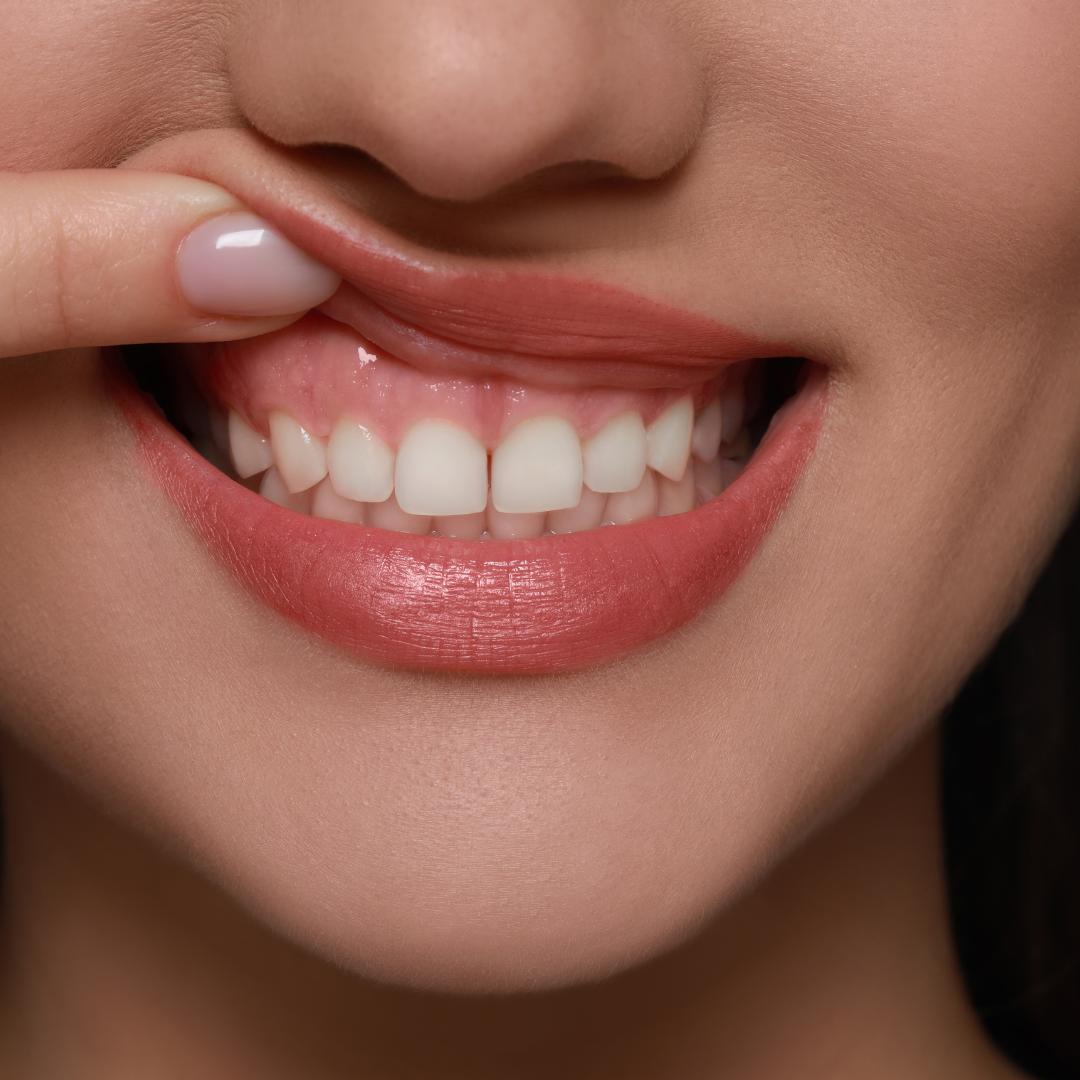Periodontal Disease: Everything You Need To Know About Gum Health
February 13, 2023
February is Gum Disease Awareness Month, so what better time to learn more about how to support your oral health?
Maintaining good oral health is more than just taking care of your teeth, but your gums as well. The American Academy of Periodontology states that gum disease is a significant public health concern. In the United States, 64 million adults 30 years and older have some form of gum disease. It is the sixth most prevalent chronic disease in the world.
What’s so dangerous about gum complications is that the initial stages are quite painless, so you may not know you have it until it’s progressed to cause serious problems. In this blog we’ll talk about what periodontal disease is, and how you can avoid it with some simple habits.
What is Periodontal Disease?
Periodontal disease, also known as gum disease, is mainly caused by bacterial infections and inflammation. This inflammatory disease appears in two major forms.
The first is gingivitis, which is the earliest stage of gum disease. It occurs when plaque and bacteria build up on your teeth and cause an infection. Common symptoms include red, swollen, or bleeding gums when brushing and flossing. Fortunately, gingivitis is reversible through treatment by your hygienist and diligent home care.
The second type of disease is periodontitis, a serious gum infection that damages the soft tissue and can destroy the bone that supports your teeth. Common symptoms include bad breath, painful chewing, and spitting out blood. Periodontitis can cause teeth to loosen or lead to tooth loss. It may even lead to conditions such as various heart diseases, chronic kidney disease, strokes, diabetes, and Alzheimer’s disease. Periodontitis is a severe chronic bacterial infection that causes permanent damage.

The Symptoms of Periodontal Disease
Symptoms of gum disease are often silent, meaning they may not appear until the advanced stages. Here’s are some signs to watch out for:
- Red, swollen, or tender gums
- Gums that bleed easily when you brush or clean your teeth
- Painful chewing
- Mouth sores
- Sensitive teeth
- Bad breath
- Gums that appear to have pulled away from your teeth
- Pus present between teeth and gums
- Loose teeth
- Change in the way your teeth fit when you bite
Who Is At Risk?
There are a variety of risk factors that may contribute to the development of periodontal disease.
- Age – Data from the Centers for Disease Control and Prevention indicates that over 70% of Americans 65 and older have some form of gum disease.
- Smoking/Tobacco Use – Tobacco is one of the most significant risk factors in the development and progression of periodontal disease.
- Genetics – Some people may be genetically susceptible to gum disease.
- Stress – Research shows that stress can make it more difficult for the body to fight off infection, including periodontal diseases.
- Grinding Your Teeth – Clenching or grinding your teeth puts excess force on the supporting tissues of the teeth.
- Poor Nutrition – A diet low in important nutrients can compromise the body’s immune system and make it harder for the body to fight off infections like periodontal disease.

Treatment Tips for Periodontal Disease
According to the ADA, here are some ways you can help reverse the symptoms and damage of periodontal disease:
Brush twice per day
You should brush your teeth at least twice a day, and you may even prefer to brush after every meal. This makes sure there is no buildup of plaque and bacteria in your mouth. Use a soft toothbrush and remember to change it every three months.
Floss
Flossing allows you to reach places that are difficult to reach with a toothbrush and prevent an excess buildup of plaque.
Avoid smoking
Smoking is directly linked to the development of gum disease, so it’s strongly recommended to avoid smoking to keep your gums and teeth healthy.
Visit your dentist for a checkup
One of the best ways to prevent periodontal disease is to visit your dentist regularly. While we know many people feel anxiety around the dentist, routine checkups can help maintain your oral health for the long term. By avoiding it, you’ll only put your health at harm and may develop serious infections like gum disease.
If you think you may have periodontal disease or have any questions about your gums, schedule an appointment with us today. We’re here to help! During your next visit, we will develop a personalized treatment plan to help keep your smile happy and healthy for years to come.
- General
Related Posts

How Cosmetic Dental Procedures Boost Self-Esteem and Confidence
Category: General
Cosmetic dentistry focuses on the appearance of your smile, helping to fix imperfections that might be the source of discomfort or insecurity. While treatments aren’t necessary from a health...

The Silent Threat: Unraveling and Preventing Gum Disease
Category: General
Gum disease, also known as periodontal disease, is a silent threat that often goes unnoticed until it reaches advanced stages. This common dental issue can lead to serious oral...

Maximizing Your Smile: Using Your Benefits in the New Year
Category: General
As we bring in a new year, it’s not just a time for resolutions and fresh starts, it’s also an ideal moment to maximize your dental benefits. Many dental...